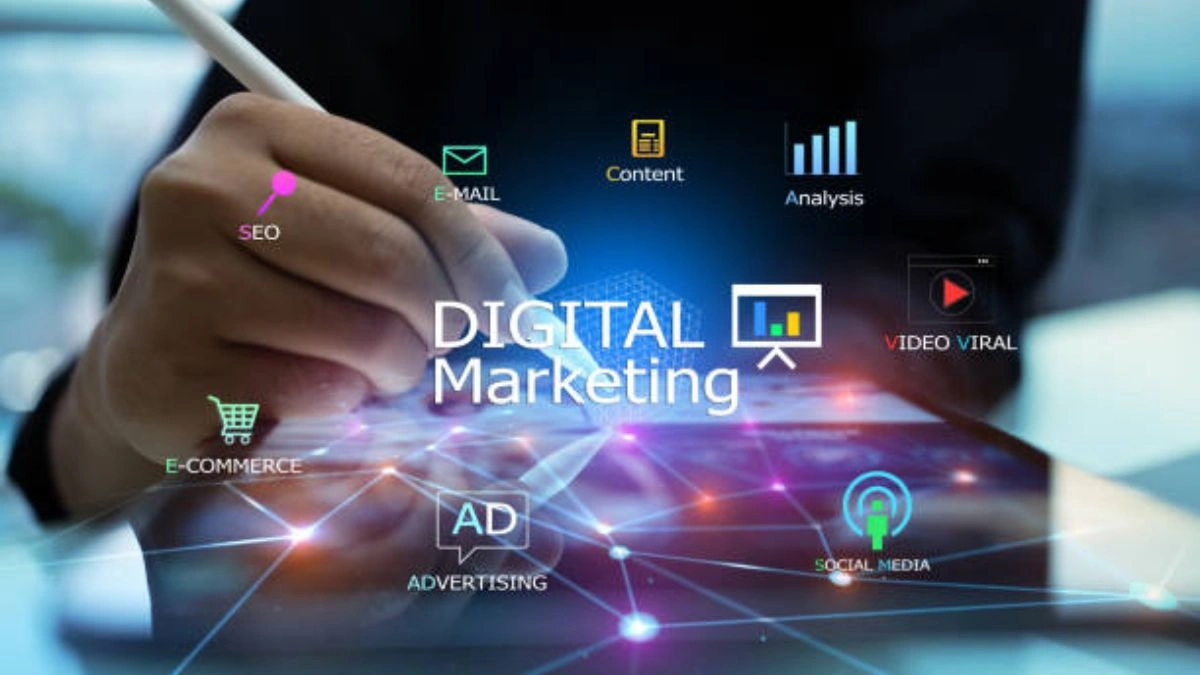In marketing, change is constant and fast-paced. With countless digital channels now available, communicating with customers presents both new opportunities and heavier workloads. Artificial intelligence (AI) is rapidly redefining digital advertising, offering tools and platforms that continually evolve. Marketers must keep up with these innovations and additional industry changes. Through specialized digital strategies, innovative campaigns, and data-driven outcomes, Manchester Marketing Agency helps regional and national companies boost brand visibility.
The Evolution Of The Digital Marketing Environment Over The Past Five Years
Technology advancements and changing customer expectations have caused major changes in the world of online advertising during the last five years.
More focused and effective campaigns are now possible because of the development of artificial intelligence (AI), which has completely changed how companies evaluate data and develop individualized marketing experiences. With features like influencer alliances and in-app shopping becoming more popular, social media companies have transformed from simple communication tools to potent e-commerce engines. In the meantime, privacy laws like the GDPR have changed how companies manage client data, making data security and transparency crucial to preserving customer confidence.
Search Optimisation Using Hybrid
Search has advanced significantly from the days of keyword stuffing. The most prosperous UK companies of today are adopting a more complex strategy that combines voice and visually appealing search optimization with classic SEO. Customers are addressing their enquiries, taking pictures, and expecting immediate, pertinent results these days; thus, this change is significant. By producing content that is compatible with all search formats, top digital marketing firms like Embryo are assisting companies in adjusting to this new reality. This entails incorporating structured data, optimizing for natural speech patterns, and making sure visual content is appropriately contextualized and annotated.
Increasing Exposure And Genuineness Through Micro-Influencers
Why is influencer marketing one of the most popular marketing strategies for 2025? Since it is effective. “69% of those who responded are likely to trust a friend, family member, or influencer recommendation rather than information coming immediately from a brand,” according to a Matter Communications survey.
Businesses do not need to spend on high-profile celebrities like Lionel Messi or Selena Gomez to market effectively. Matter’s research indicates that social media users are becoming less interested in celebrity influencers.
The Revolution Of First-Party Data
Businesses are realizing the need for direct consumer interactions again as a result of the collapse of third-party cookies. Gathering email addresses is no longer the only goal. Astute UK companies are developing all-encompassing first-party data strategies that provide clients with real value while protecting their privacy.
Effective strategies consist of:
-
Developing worthwhile gated content that users genuinely desire to access
-
Using interactive technologies that yield results right away while gathering information
-
Creating loyalty programs that provide real advantages
-
Putting in place preference centers that provide consumers with actual control
The Evolution Of Social Commerce
There was a time when social networks were used primarily to build brand awareness. Those times have changed. UK businesses are now seeing real results by turning social engagement into direct revenue streams. However, simply adding a “buy now” prompt to every post is not sufficient.
The most effective strategies blend in perfectly with users’ actual platform usage. Because Instagram shopping and TikTok commerce operate differently, astute companies are modifying their approaches accordingly. Subtly facilitating purchasing decisions while producing content that seems natural on each platform is what’s effective.
Trends In AI As Well As Digital Marketing
Whether you use many tools or not, artificial intelligence (AI) is becoming a crucial component of marketing. Numerous systems used by marketers, including search engines, social media, and customer relationship management (CRM) systems, are integrated with the technology. 54% of marketers currently utilize AI, according to a Marketing Week study. Compared to a year ago, although slightly more than a third (37%) had utilized the technology, this represents a huge increase. See our 10 startling AI marketing figures in 2025 blog post for additional information on the technology’s effects.
Several Channels Of Attribution
The way UK firms define success is arguably the biggest change we’re witnessing. The days of single-channel attribution are over. These days, progressive businesses consider the full customer journey at every touchpoint. This does not entail immediately putting sophisticated attribution models into practice. Astute companies are beginning with easy fixes:
-
Monitoring phone conversations in addition to online interactions
-
Linking online browsing to in-store visits
-
Recognizing the function of various decision-making channels
-
Monitoring interaction across the whole client journey
Emphasizing Human Narratives
Although 85% of decision-makers intend to either retain or enhance their content marketing expenditures in the upcoming year, content marketing is still growing as a channel. However, what works is evolving. In contrast to AI-driven content creation, first-person, blogger-style material made a comeback in 2024.
When it makes sense, brands can capitalize on their leaders’ experience and knowledge to join this movement. Consider relying on your founder’s narratives regarding the ideation or design process of new goods or an executive’s perspective on a problem that has emerged in your sector.
Final Words
Digital marketing has seen a significant transformation in recent years, and 2025 is expected to be a fascinating year. UK companies should concentrate on improving the consumer experience, pay attention to the touchpoints and content kinds that they value, and ensure that their advertising campaigns are focused on increasing trust if they want to stay ahead of the competition.


